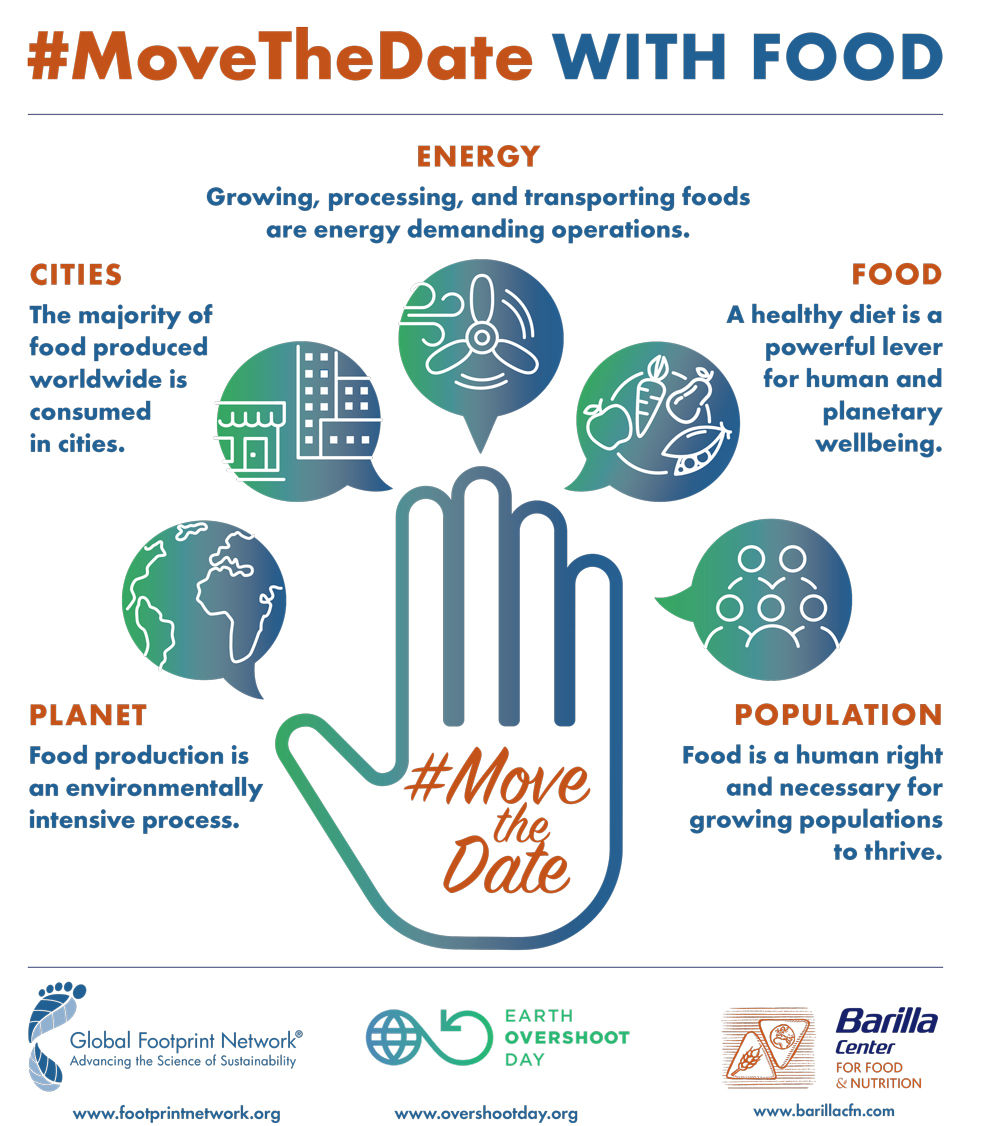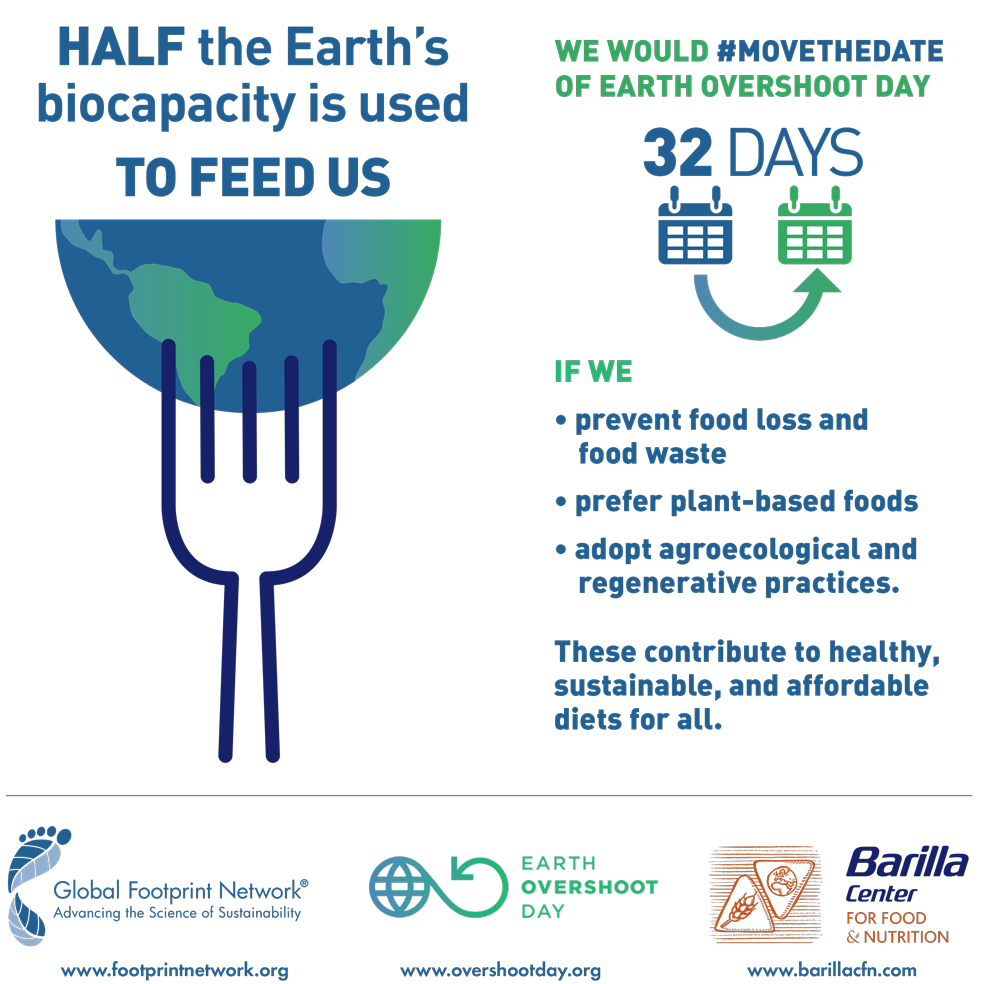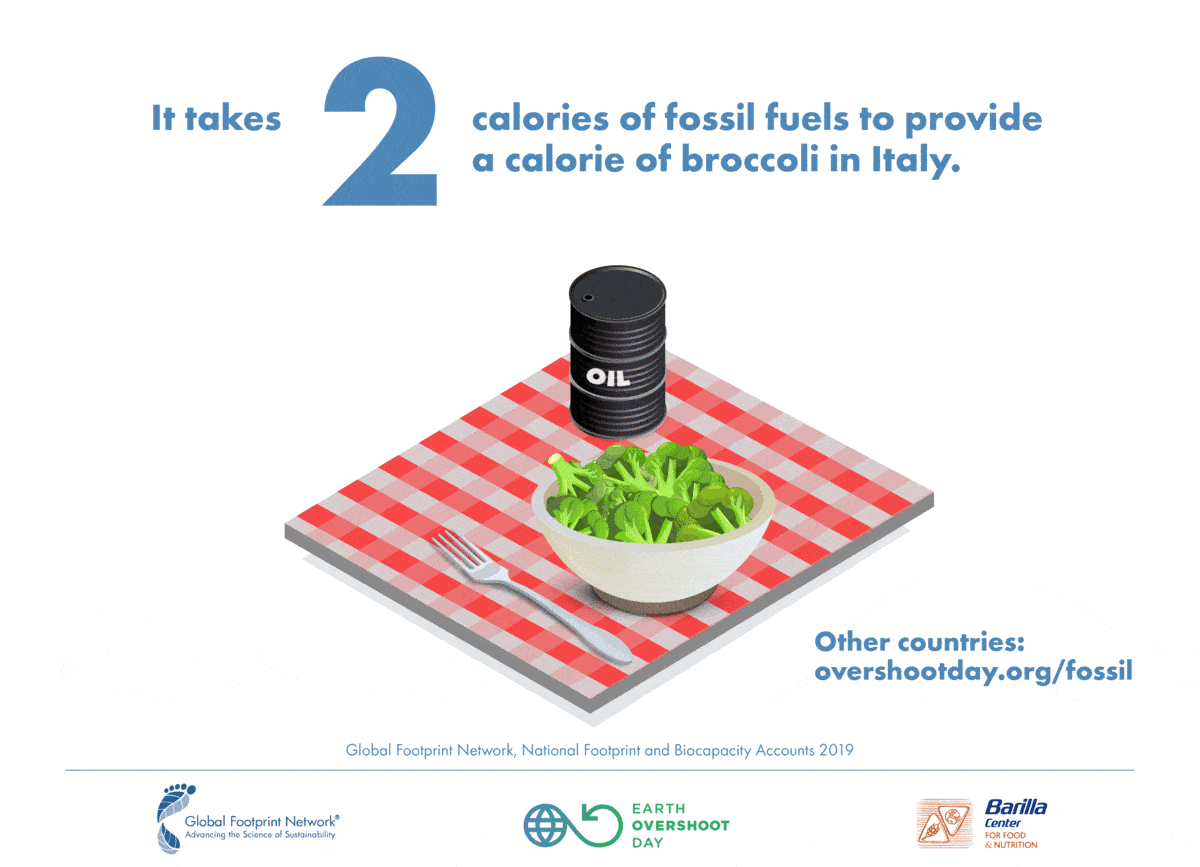Half of Earth‘s biocapacity is used to feed us.
Two major issues when addressing food sufficiency, malnutrition, and hunger (UN Sustainable Development Goal 2) are:
- Resource inefficiency in food production
Animal calories are significantly more resource intensive than plant calories to produce. Current agriculture is also fossil fuel intensive. For example, it takes 5 calories of fossil fuel in Belgium to provide one calorie of meat. - Food waste
About one third of the food produced in the world for human consumption — 1.3 billion tonnes every year — gets lost or wasted, with high and low-income countries dissipating roughly the same quantities of food, according to the UN Food and Agriculture Organisation.
The Power of Possibility shows there are many food interventions that can #MoveTheDate of Earth Overshoot Day. For example, reducing food waste, fostering short chain food systems, and tree intercropping, to name a few. They’re creative, economically viable, and ready to deploy at scale. With them, we can make ourselves more resilient. If we move the date 6 days each year, humanity can be out of overshoot before 2050.
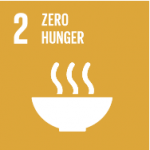
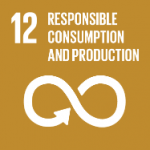 One target of UN Sustainable Development Goal 12 Sustainable Consumption and Production is to halve per capita global food waste at the retail and consumer levels and reduce food losses along production and supply chains, including post-harvest losses, by 2030. If we cut food waste in half worldwide, we would move Overshoot Day by 13 days. To be sustainable, development ultimately must also fit within our planet’s resource budget.
One target of UN Sustainable Development Goal 12 Sustainable Consumption and Production is to halve per capita global food waste at the retail and consumer levels and reduce food losses along production and supply chains, including post-harvest losses, by 2030. If we cut food waste in half worldwide, we would move Overshoot Day by 13 days. To be sustainable, development ultimately must also fit within our planet’s resource budget.
Ever more countries also depend on food from abroad. Such global specialization in food production may lead to efficiencies, but it also can reduce resilience of food systems, particularly for countries that are both net-importing food and have low incomes. These countries are most vulnerable to food shocks.
#MoveTheDate Of Earth Overshoot Day With Food
In partnership with Barilla Center for Food and Nutrition, Global Footprint Network’s assessment of the Ecological Footprint of various foods highlights this overarching pattern: the healthier the food, the lower its ecological impact. A nutritionally balanced, vegetarian diet boasts an Ecological Footprint that is 2.5 times lower than that of one comprised mainly of animal-based proteins. Therefore, food that should make up a larger part of our diet are also those with lower Footprints. The tasty traditional Mediterranean diet fits the bill perfectly: lots of fresh vegetables, grains, olive oil, and low amounts of animal products.
Read more from our opinion editorial in Diplomatic Courier (English), EsGlobal (Spanish), or Green Report IT (Italian).
Because half of Earth’s biocapacity is used to feed us, food is a powerful lever to #MoveTheDate of Earth Overshoot Day. If we prevent food loss and food waste, prefer plant based foods, and choose foods that are grown with agroecological and regenerative practices, we could move Earth Overshoot Day 32 days.
How will you #MoveTheDate?
Take your first step today!
#MoveTheDate Of Earth Overshoot Day With Food
In partnership with Barilla Center for Food and Nutrition, Global Footprint Network’s assessment of the Ecological Footprint of various foods highlights this overarching pattern: the healthier the food, the lower its ecological impact. A nutritionally balanced, vegetarian diet boasts an Ecological Footprint that is 2.5 times lower than that of one comprised mainly of animal-based proteins. Therefore, food that should make up a larger part of our diet are also those with lower Footprints. The tasty traditional Mediterranean diet fits the bill perfectly: lots of fresh vegetables, grains, olive oil, and low amounts of animal products.
Read more from our opinion editorial in Diplomatic Courier (English), EsGlobal (Spanish), or Green Report IT (Italian).
Because half of Earth’s biocapacity is used to feed us, food is a powerful lever to #MoveTheDate of Earth Overshoot Day. If we prevent food loss and food waste, prefer plant based foods, and choose foods that are grown with agroecological and regenerative practices, we could move Earth Overshoot Day 32 days.
How will you #MoveTheDate?
Take your first step today!




